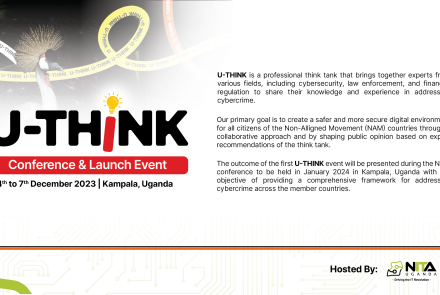The Government of Uganda has identified Information and Communication Technology (ICT) as a catalyst for social and economic development in line with the Uganda Vision 2040 that seeks to attain “A Transformed Ugandan Society from a Peasant to a Modern and Prosperous Country.”
The third National Development Plan, NDP III (2020/21 – 2024/25) identifies 18 programmes through which the Plan will be delivered, one of these being the Digital Transformation Programme that “aims to increase ICT penetration and use of ICT services for social and economic development”.
Key expected results include: increasing ICT penetration; reducing cost of ICT devices and services; creating more direct jobs in the sector; increasing ICT incubation; and increasing government services online”.
While there has already been substantial development in fibre in the country through investment by both the Government and private operators, Uganda continues to experiences multiple challenges with regard to broadband, including duplication of infrastructure segments by different operators resulting into limited effective fibre backbone; inadequate penetration of the broadband network in the country, especially in rural and remote areas; high cost of broadband services compared to other countries and relative to income levels; limited applications and services; limited demand-side skills, limiting the effective use of the available broadband services; inefficient and inappropriate use and allocation of spectrum; and lack of a responsive policy, legal, regulatory and institutional framework.
These challenges demanded that the Government of Uganda develops a coherent plan for broadband infrastructure to achieve broadband for all by 2030 as set out in the Digital Economy for Africa (DE4A) Initiative: the National Broadband Baseline Study and Broadband Infrastructure Blueprint, has been developed to respond to this gap.
This study was supported through the World Bank’s Regional Communications Infrastructure Programme (RCIP) that, among other things, intends to review, develop and implement relevant ICT policies, strategies, laws and technical regulatory frameworks to support a modern and vibrant ICT sector in the country. While this Report is not a statement of government policy or strategy, it is a timely and critical source document that will guide new initiatives.
It is my great pleasure and privilege to present the national broadband survey and infrastructure Blueprint which provides the sector with a core reference point for addressing gaps and challenges in the broadband ecosystem, and will enable the Ministry of ICT and National Guidance to effectively play its oversight role of shaping and guiding the growth of broadband in Uganda.
Hon. Dr. Chris Baryomunsi
Minister for ICT and National Guidance




